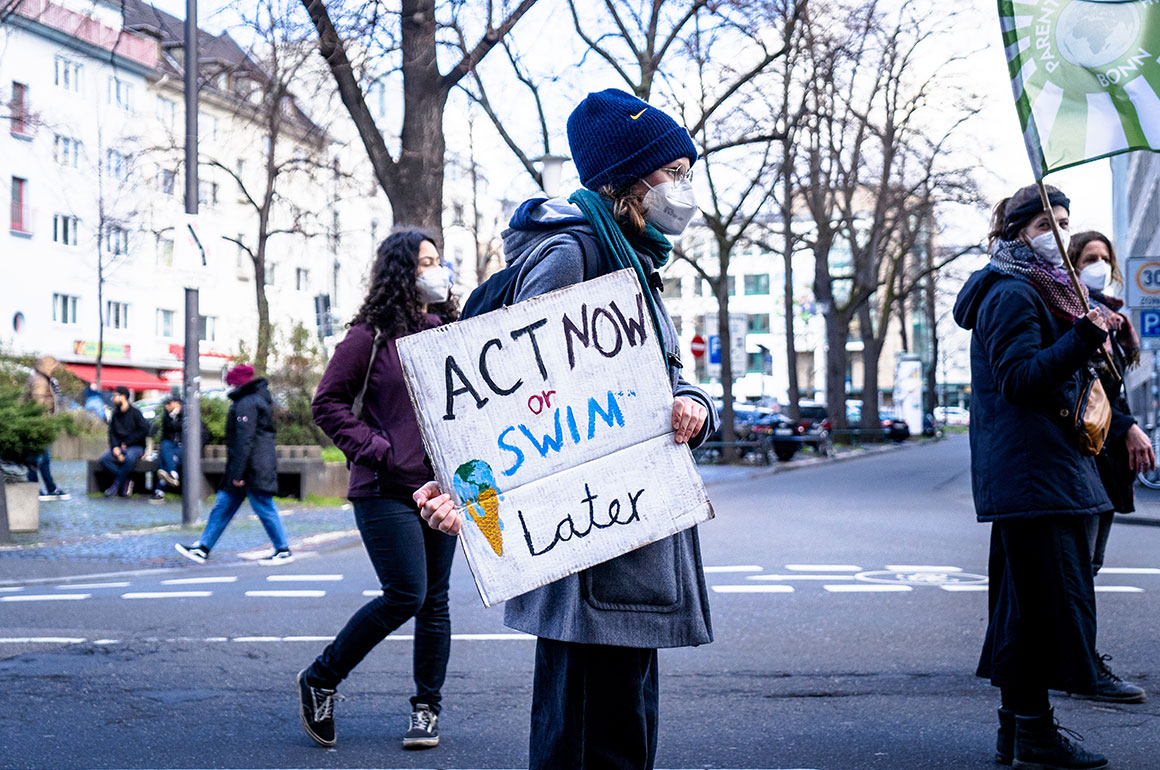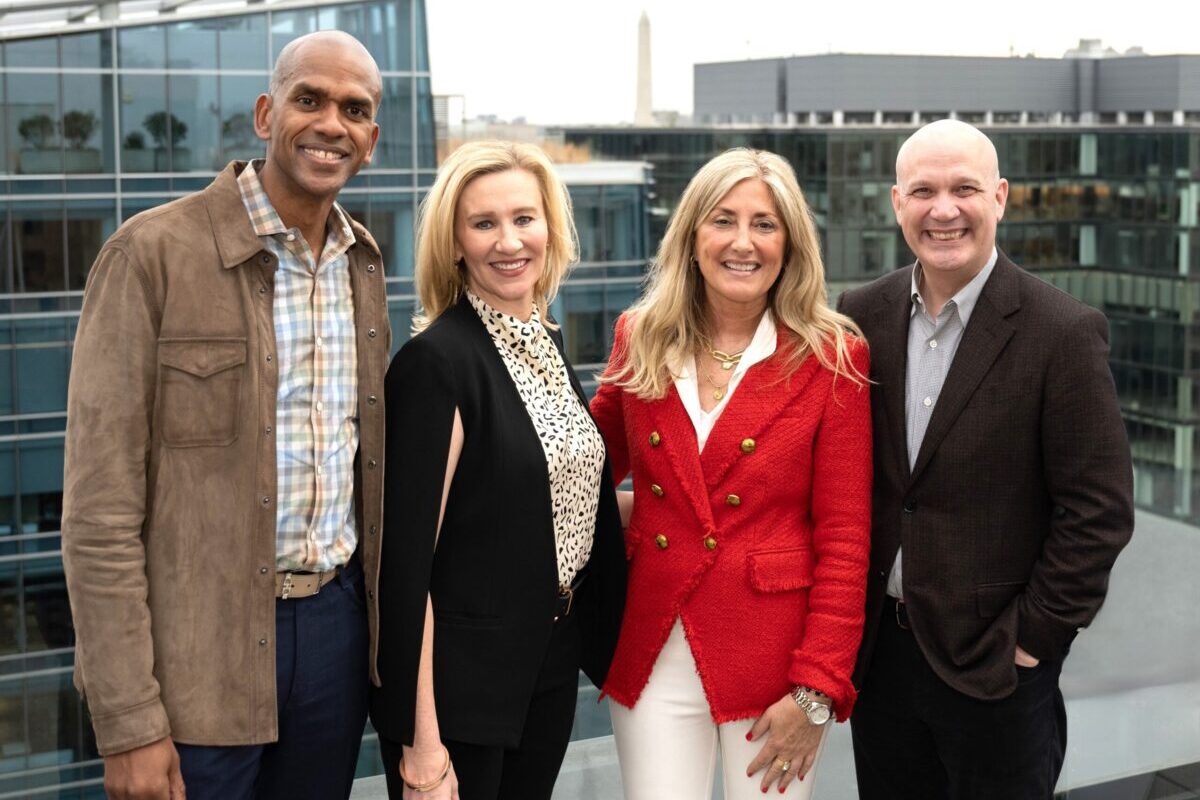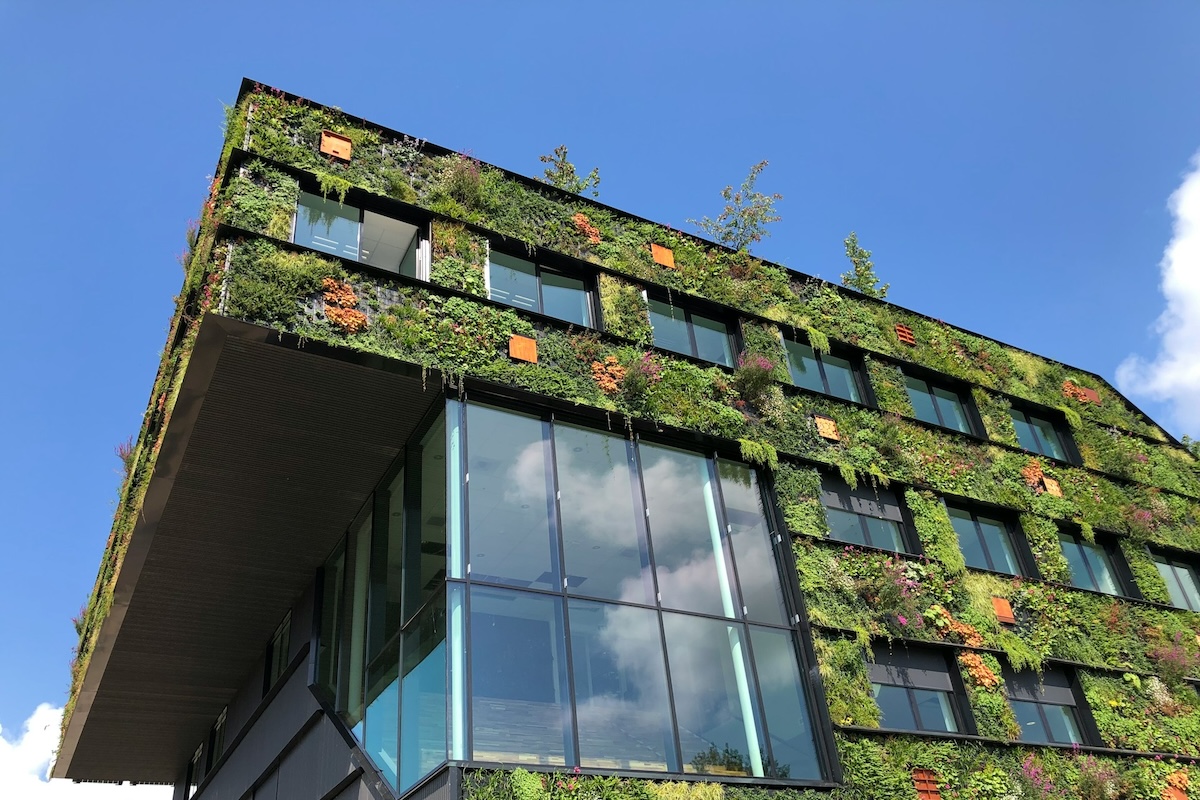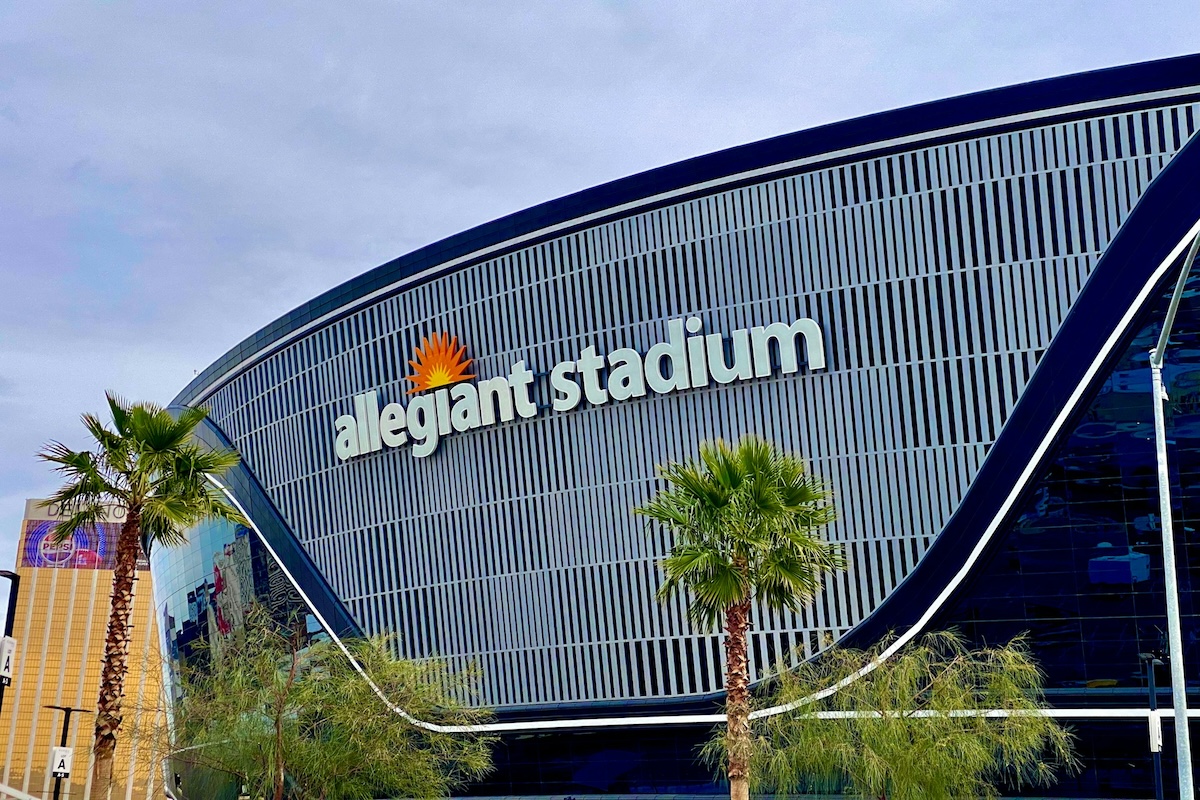Over the years, governments, industries, and organizations have pledged to adopt terms like sustainability, carbon-neutral, eco-friendly, and net-zero.
Language and ideation around these topics are regularly thrust into the limelight across various platforms around the globe, particularly around this time of year when the United Nations Climate Change Conference of the Parties (COP) takes place. This year, the event took place in Glasgow and was aptly named COP26, as it is the 26th year of the annual summit.
For the first time, the events industry made its mark when various governing bodies, associations, and event-related businesses signed a pledge committing to net zero by 2050. In addition, over 150 small to medium event businesses have taken action and joined The Race to Zero, the United Nations Framework Convention on Climate Change (UNFCCC) campaign, to rally leadership from business.
In simple terms, net zero means not adding to the number of greenhouse gas (GHG) emissions in the atmosphere and further reducing emissions along the way — a delicate balancing act to prevent temperatures across the globe from rising above the limit of 1.5° Celsius (approximately 2.7° Fahrenheit) to avoid the potentially catastrophic impacts of climate change.
To achieve this, climate scientists say net zero must be reached by 2050, although not all experts agree, and some suggest that the 2050 goal may be “too little too late.”
Through our industry’s commitment to net zero, event professionals are finally taking a stand and pledging to make a difference to the planet (the place we all call home) — a big step in the right direction.
But is it enough?
Climate change and events
To understand why tackling climate change is relevant to the event industry and the role our industry can play in combating the climate crisis, we first need to understand what climate change is and how we are all connected.
WHAT IS CLIMATE CHANGE?
The climate is complex and refers to our planet’s entire system including the atmosphere, oceans, land, ecosystems, and polar ice caps. Many factors may influence this system: the sun, oceans, soil, and living organisms like plants, animals, and people.
The climate varies from region to region, and the results from influencing factors are interconnected — a negative or positive impact on one part of the system affects the entire system.
Climate change refers to long-term shifts to this system, most notably through temperature and weather changes. While climate change occurs naturally, the rapid rate at which the climate is currently changing is caused mainly due to anthropogenic (human) activities.
WHAT CONTRIBUTES TO CLIMATE CHANGE?
Since the start of the industrial revolution, our activities — like the burning of fossil fuels, deforestation, and waste — have contributed to climate change through the increase in GHG.
In the past decades greenhouse gases like carbon dioxide (CO2), methane (CH4), and nitrous oxide (N2O) have increased significantly. At present, atmospheric levels of CO2 are at a level that has not been seen for at least 800,000 years.
SO WHAT’S THE PROBLEM?
If climate-related impacts and risks rise too rapidly, it leaves natural and human systems vulnerable due to the inability to adapt fast enough.
Changes to our climate have indeed already impacted these systems — systems we depend on for survival as a species.
Some examples include:
1. reduced biodiversity loss and extinctions
2. compromised food security
3. risks to health (pollution, the emergence of pathogens)
4. lack of access to freshwater
5. damage to infrastructure
6. disruption to lifestyles and quality of life
HOW CLIMATE CHANGE COULD FURTHER DISRUPT EVENTS
Imagine people not traveling to an event because the transport system has been disrupted, and then not having access to online events due to power disruptions caused by extreme weather?
Or diminished food supplies and limited freshwater due to drought and a disruption in the supply chain?
The environmental damage that contributes to climate change can have other negative effects as well. Human activities like deforestation, for example, can lead to the emergence of deadly pathogens, which in turn could trigger additional lockdowns.
Climate change is a global crisis that requires top priority across all industries because it will affect everyone eventually.
The foundation of our industry has and always will be people. If the impacts of climate change make it impossible for people to attend our events either online or in-person, the industry will collapse — something we caught glimpses of with the Covid pandemic.
But there will be no vaccine or mask mandates for climate change. The solution is hard conversations, rapid and intentional action, innovation, and positioning ourselves as leaders to prevent further damage now — even if it starts with a single step.
The 2021 industry response to climate change
NET ZERO CARBON EVENTS
As mentioned previously, event industry leaders recently signed a Net Zero Carbon Events pledge at COP26. The pledge is a collaborative initiative designed to address the needs of climate change within the event industry.
Facilitated by the Joint Meetings Industry Council (JMIC), an industry organization representing the combined interests of major international meetings industry associations, the initiative has had support from the UNFCCC with input from stakeholders across the industry.
According to the Net Zero Carbon Events website, the initiative aims to achieve the following:
1. Jointly communicate our industry’s commitment to tackling climate change and driving towards net zero by 2050
2. Develop common methodologies for measuring the industry’s direct, indirect, and supply-chain greenhouse gas emissions
3. Construct an industry-wide roadmap towards net zero by 2050, and emission reductions by 2030 in line with the Paris Agreement, with support and guidance on key issues
4. Foster collaboration with suppliers and customers to ensure alignment and common approaches
5. Establish common mechanisms for reporting progress and sharing best practices
“Over the coming year all supporters of the initiative will be invited to work together to define an industry Net Zero Roadmap for Events that is aligned with the targets of the Pledge. The Roadmap will be launched at COP 27 in November/December 2022.”
Net Zero Carbon Events
HOW IT WORKS
If businesses and organizations decide to take part in the Net Zero Carbon Events initiative and sign the pledge, they have to commit to the following:
1. Before the end of 2023, publish their organization’s pathway to achieving net zero by 2050 at the latest, with an interim target in line with the Paris Agreement’s requirement to reduce global GHG emissions by 50% by 2030
2. Collaborate with partners, suppliers, and customers to drive change across the value chain
3. Measure and track their Scope* 1, 2, and 3 GHG emissions according to industry best practices
4. Report on progress at least every two years
*Scope 1, 2, and 3 refer to the carbon footprint (a term used to describe the amount of GHG emissions) of an organization, event, or activity in the following ways when being measured for report and auditing purposes:
Scope 1: Direct emissions from owned or controlled sources (like owned company vehicles, combustion of coal boilers, or combustion of diesel in generators)
Scope 2: Indirect emissions produced to generate electricity or steam (like purchased electricity)
Scope 3: Includes all other indirect emissions that occur within the company and value chain (like flights, bus travel, waste, and water supply)
SUPPORT FOR SMES IN THE RACE TO ZERO
Apart from the Net Zero Carbon Events initiative, there are other industry projects underway.
As a prime example, Positive Impact and the SME Climate Hub are already working together to support over 150 small-to-medium businesses with resources to act on their net-zero carbon commitments and join The Race to Zero.
The initiative could be described as a pathway for small-to-medium event businesses to take the actions outlined in the net-zero pledge.
The Race to Zero is a UNFCCC campaign to mobilize a coalition of leading net-zero initiatives, representing over 700 cities, 3000 businesses, 170 investors, and 600 Higher Education Institutions. These “real economy” actors join 120 countries in one of the largest event alliances committed to achieving net-zero carbon emissions by 2050 at the latest. Collectively these actors now cover nearly 25 percent of global CO2 emissions and over 50 percent of GDP. Given the breadth of this initiative, many event clients and customers will likely have joined The Race to Zero.
The Race to Zero initiative for the event sector aims to achieve the following:
1. Raise the profile of the event sector at a government and business leader level
2. Align event sector action on net-zero targets with the actions taken by their clients, sponsors, customers, and other key stakeholders
3. Support event sector SMEs with the (free) resources they need to act on their net-zero commitments over the following steps: commitment, strategy, measurement, reduction of their own and value-chain emissions, and contributing to climate action in society
HOW IT WORKS
For small-to-medium businesses (under 500 employees) who want to join The Race to Zero and raise the profile of the event sector, they must register their net-zero commitment on the Positive Impact website. (Registration must be completed on the Positive Impact website as it is not yet possible to register under the events sector on the SME Climate Hub at this stage.)
To participate in this program, registrants must:
1. Decide by when they will reach net zero (so far over 70 percent of registrants have committed to being net zero by 2040)
2. Commit to halve greenhouse gas emissions before 2030
3. Commit to report on their progress every year
To help them achieve their objectives, registrants will also receive supporting materials at each of the program’s six stages. These materials align with SME Climate Hub and have been tailored for the event sector.
As a testament to the power of collaboration, the background to the creation of this initiative includes a year-long program of event sector engagement with UNFCCC and COP26 Climate Change Champions.
Event Sector Associations — many of whom have signed up to support the Net Zero Event Pledge, but who are relying on their members to take action on the pledge — can also join The Race to Zero through initiatives like The Climate Action for Associations.
Barriers to net zero
In today’s world, it is hard not to become cynical about the planet’s future — especially because the climate debate has been happening for a while, and unfulfilled promises have been made in the past.
The effects we have witnessed from the Covid19 pandemic are only a preview of what’s to come if climate change spirals out of control. Therefore, tackling climate change should be a top priority for event professionals.
Events impact the environment and communities hosting them, especially for activities that last a short time. Think of the waste generated from events or the electricity usage alone. Granted, this has been reduced somewhat through the adoption of online formats in response to the pandemic and subsequent restrictions, but we are not out of the dark yet. In-person events are already returning, and their frequency is likely to increase over the coming year. Further, even online events use energy to power the servers and computers behind all that connectivity. We still have an impact as an industry, and any long-term improvements will have to be made with intention — not just as the result of forced cancellations.
The goal to achieve net zero is not without its barriers, barriers we should consider when embarking on this journey:
Greenwashing
Greenwashing is the act of misleading consumers into thinking a product or service is environmentally-friendly when upon closer inspection, it is not.
The danger of greenwashing in the current campaign is that monitoring of the reporting process could be compromised. What we could see happening is signatories submitting reports where the data lacks integrity and is self-proclaimed without an independent and accredited third-party sign-off.
Greenwashing could also lead to an all-talk, no-action situation, thus leading people to believe the industry is doing something to achieve net zero when it is not taking real and tangible action in combating climate change.
Greg McManus, chairperson of the Event Greening Forum (EGF), a South African based association that signed the Net Zero Carbon Events pledge, also cautions against greenwashing:
“Greenwashing poses untold risks for a business, but in today’s age of instant communication, the single biggest risk is that of reputational damage. In addition to this (as if you need any other motivation to do the right thing), greenwashing will lead to loss of market share with the discerning market-moving their business to companies that walk the talk and do the right thing. And perhaps one last consideration is the cost of greenwashing. Volkswagen was fined almost as much as their annual worldwide sales revenues for lying about their emission standards — they are still counting the loss of customers and credibility through a case of greenwashing.”
Participant drop-off
After the hype has fizzled out and the warm fuzzy feelings have been replaced with the reality of the task ahead, participants may experience a sense of being overwhelmed by information overload and “what-do-i-do-next” anxieties.
This feeling may end up leading to a drop-off in implementing policies, processes, and grassroot actions resulting in little to no action transpiring at all.
Access to resources
Without adequate support, access to resources, and education, achieving net zero within the industry may become a challenge.
Support could include a comprehensive outline of what the net-zero journey looks like, why the framework exists, and how to achieve goals and financial assistance in achieving them — after all, implementing practices like energy and waste management generally costs money. Training and development will need to be given to upskilling event professionals within this space. As mentioned earlier, Positive Impact’s Race to Zero initiative for SMEs represents a major step forward in this effort, but more support may be needed.
The compilation of reports also demands a particular set of skills and expertise, which many industry professionals may not have access to — like SMEs, which make up the majority of event companies around the world. Carbon footprint audits cost money and should be performed by independent outsourced parties to confirm data integrity.
Perceived carbon neutrality
Offsetting an event or business carbon footprint would also need to be managed. Carbon offsetting is where a business, individual, or activity (like an event) will purchase carbon credits to mitigate activities that contribute to emissions. In other words, they are theoretically compensating for their own impact by investing in carbon-reducing initiatives, such as a program to plant trees managed by another organization or entity.
A trend over the past few years is that organizations will purchase carbon credits without implementing policies and procedures to manage their own environmental impact through internal reduction in waste production or energy consumption — viewing carbon offsetting as a silver bullet to combat climate change.
McManus also states that carbon offsetting is often regarded as the solution to a much larger problem and seen by less scrupulous companies as a “quick-fix” to attract market share: “Unless sound management systems have been implemented and managed accordingly, understanding and measuring the carbon and other impacts of the business is nothing less than thumb suck at best, and at worst, the most visible example of greenwashing.”
Offsetting should instead be used to minimize the damage of carbon emissions after all other avenues have been exhausted. Further, credits need to be purchased from verified projects, preferably in the area the activity took place.
Too little too late
Initiatives that we are seeing now are a step in the right direction, but have we left things too late?
One can’t help wondering about the rapid response to the pandemic — could a similar implementation to achieve net zero also be carried out with the same sense of urgency? Do we have until 2050 to fix the current climate?
Some experts think net zero and the time frame is a dangerous trap.
Benefits of net zero and if it works
Thankfully, it is not all doom and gloom.
Our industry is unique. Event professionals are some of the most resilient, innovative, and hardworking individuals. Events are a tool that when used correctly, can drive developments, grow businesses, and connect people.
And because we have the capability of connecting people around the world and facilitating meaningful engagement, we can be the catalyst for collective positive change through our platforms.
As Carina Bauer, CEO of IMEX Group, recently pointed out in an interview with EventMB, COP26 was itself an in-person event. “The reality is that even to solve the problems of climate change, 40,000 people from around the world needed to get together in Glasgow because it’s more effective to get together face to face to solve those problems,” she said.
Fiona Pelham, CEO of Positive Impact, a not-for-profit organization that has been providing engagement, collaboration, and education to create a sustainable event industry since 2015, agrees with the unique opportunities for our industry:
“If we start talking in the language of the Sustainable Developments Goals (SDGs), businesses and governments will understand what we do. For example with SDG 16, there is an indication of inclusion, participation, and decision-making which one could say is what we make happen as a sector. The world needs to understand that they need events for this reason. But we can’t pretend to adopt a new narrative until we have dealt with carbon, as we can’t pretend we have nothing to do with the issue. So, if every member of the events’ supply chain makes a commitment to net zero and takes action, then we will be dealing with the carbon challenge and our true narrative will become participation and inclusion.”
It is up to us to hold ourselves accountable. Recent actions could potentially lead the way to achieve net zero and thereby safeguard the planet and our sector for future generations.
Benefits to working towards net zero and collective industry action include:
Awareness
By shedding awareness on the current climate situation, the possibility for real change exists. When hard conversations start, it gives people the opportunity to become aware of their role to play, the impacts they can have, and what they can do, ultimately empowering people through education and opening the door for innovation.
Awareness has a ripple effect. If our industry hosts events that are more sustainable, that will, in turn, generate awareness among our clients and event attendees.
Innovation
Disruption ultimately leads to innovation. But do we have to wait for the crisis to reach boiling point (pun intended) before we do something?
Through the pandemic, the emergence of new event technology and innovative solutions has been seen within the industry — if the same ingenuity is applied to sustainability initiatives, new ways to tackle the climate crisis are no doubt around the corner.
Safeguard livelihoods
If there is no planet, there are no events. By doing our bit to protect the planet, we will safeguard the livelihoods of professionals within this space and, indirectly, others, and future-proof our industry to survive and contribute in a meaningful way.
A healthier planet
Who doesn’t want to live in an environment that gives access to clean water and no pollution? Besides the benefit of safeguarding livelihoods, as mentioned above, we will also be setting the stage for a healthier planet — which means healthier ecosystems and people.
Collaboration
Collaboration is crucial in the fight against climate change — it cannot be tackled alone.
With various initiatives underway in the industry, event businesses, associations, and suppliers are working together against an issue that will affect us all.
There is tremendous power in the collective. Collaborating could create a more resilient event sector and an environment where innovation can flourish.
Manage risks and build brand reputations
Minimizing the risk of unnecessary demand on resources such as energy and water ensures that organizations will maintain business sustainability and longevity.
Consumers are also becoming more aware of the impact that products and services have on the environment. By adopting and implementing net-zero actions, brands can demonstrate that they care and are walking the talk through transparency. For event organizers, a strong sustainability track record will help to foster attendee loyalty and drive ticket sales.
What now?
While barriers exist, we mustn’t get lost in the details.
“Sometimes, we kill ourselves with the details, and the solutions are not yet all there. But we have to get better at trying things and discovering the gaps rather than just saying the solutions are not there — we can’t do it. “
Fiona Pelham, CEO of Positive Impact
Radical change often comes about by sitting down, having the tough conversations, and encouraging different approaches to the journey in reaching net zero. In contrast, it can be counterproductive to shut down dialogue and say we all need to do it one way. Swift action is required. However, our approach will evolve after witnessing what works and what does not — we must remain open. Start at the beginning.
IN CONCLUSION
The real question we need to be asking ourselves as event professionals is: What reasons do I have for not acting and are those reasons good enough in the long-term?
While every journey starts with a commitment to a process, the actions we take moving forward over the next weeks, months, and years will determine the role we will play in being part of the solution. If we succeed in our objectives, we can contribute to the betterment of the global community while safeguarding our industry.





